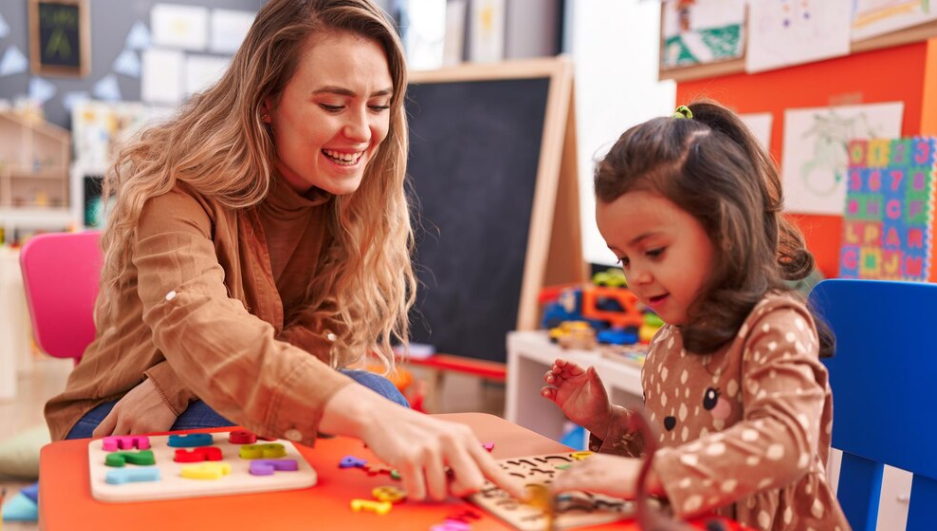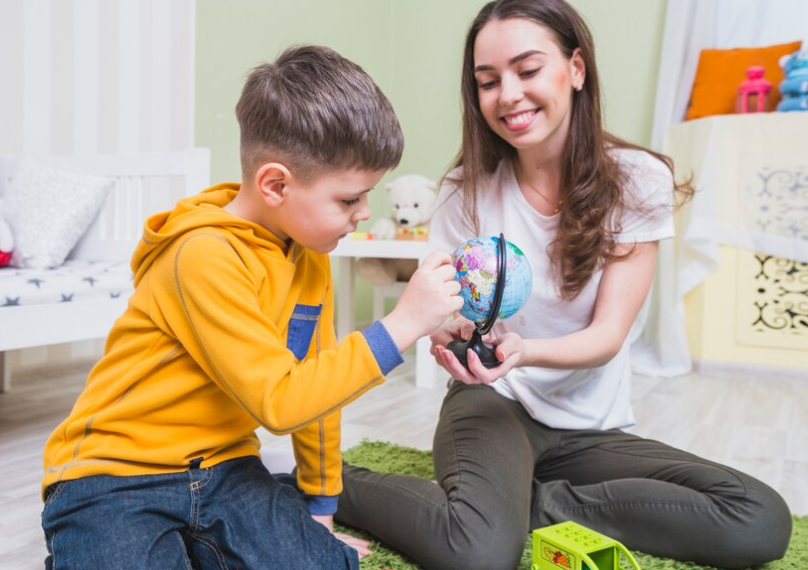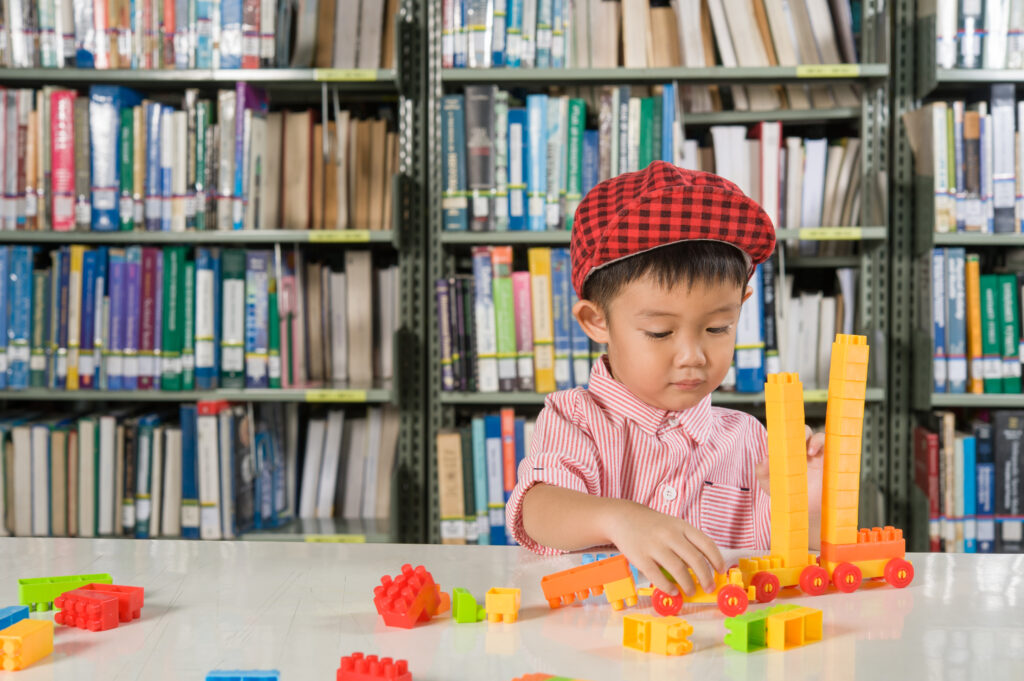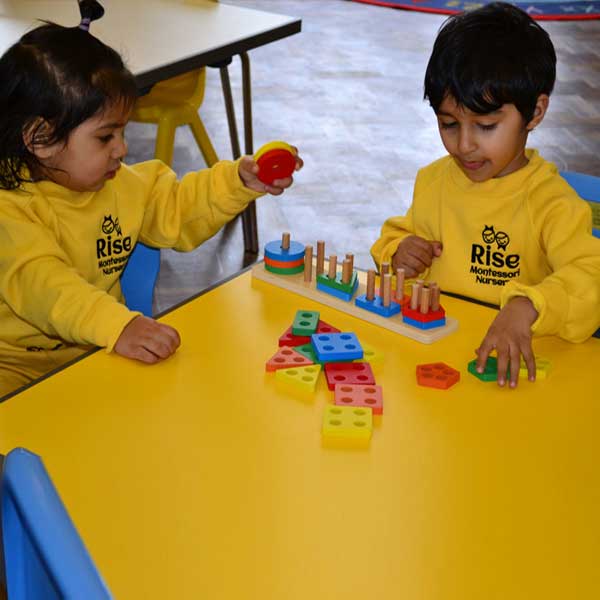When parents think of early childhood education, they often focus on reading, writing, and math. While these subjects are essential, the Montessori method takes a broader approach by integrating practical life skills into the curriculum. These activities go beyond academics, helping children develop independence, responsibility, and confidence. In this blog, we will explore why practical life skills are a cornerstone of Montessori education and how they benefit a child’s overall development.

What Are Practical Life Skills?
Practical life skills refer to everyday tasks that help children become self-sufficient. These include activities such as pouring, buttoning, sweeping, setting the table, and even simple food preparation. While these tasks may seem basic to adults, they provide young children with a sense of purpose and achievement.
In Montessori classrooms, these activities are carefully designed to match a child’s developmental stage. They are structured to promote fine and gross motor skills, concentration, and problem-solving abilities. More importantly, they instill a deep sense of responsibility and independence that stays with children as they grow.
Why Are Practical Life Skills Important in Montessori Education?
1. Fostering Independence
Independence is one of the primary goals of Montessori education. Practical life activities encourage children to take responsibility for themselves and their surroundings. Whether it’s tying their shoelaces or pouring their own water, these small tasks empower children to take charge of their needs. This sense of self-sufficiency builds confidence and prepares them for more complex challenges in life.
2. Enhancing Fine and Gross Motor Skills
Many practical life activities involve precise hand movements that refine fine motor skills, which are crucial for writing and other academic tasks. Activities like threading beads, using tweezers, or buttoning a shirt strengthen hand muscles and improve coordination. On the other hand, gross motor skills are developed through larger movements, such as sweeping or carrying objects, which build strength and balance.
3. Building Concentration and Focus
A core aspect of Montessori education is helping children develop deep focus. Practical life activities require attention to detail and persistence. For example, when a child carefully pours water from one cup to another without spilling, they are practicing patience and precision. Over time, this concentration extends to other areas of learning, including reading and problem-solving.
4. Encouraging a Sense of Responsibility
Montessori classrooms emphasize respect for the environment and others. Children learn that their actions have consequences and that they play an active role in their community. Tasks such as cleaning up after themselves, watering plants, or feeding a class pet teach responsibility and care for their surroundings. These lessons help children grow into responsible individuals who contribute positively to society.
5. Developing Social and Emotional Skills
Practical life activities often involve working with peers, promoting social interaction and teamwork. Children learn essential life skills such as taking turns, sharing, and cooperating with others. Additionally, accomplishing these tasks gives children a sense of pride, boosting their self-esteem and emotional resilience.
6. Preparing for Academic Success
Though practical life activities are not directly academic, they lay the groundwork for future learning. For instance, the hand control developed through practical tasks translates into better handwriting skills. The ability to focus and follow a sequence of steps aids in math and science. By mastering these foundational skills, children are better prepared for more complex academic concepts.

Practical Life Skills in Action
Montessori classrooms include a dedicated Practical Life area where children can engage in various hands-on activities. Some common examples include:
- Self-care tasks: Washing hands, dressing, brushing hair
- Care for the environment: Sweeping, dusting, watering plants
- Food preparation: Cutting fruits, peeling eggs, pouring liquids
- Grace and courtesy: Greeting others, saying “please” and “thank you”
These activities are introduced in a step-by-step manner, ensuring that children gain confidence in completing them independently.
Bringing Practical Life Skills Home
Parents can support their child’s Montessori learning by incorporating practical life activities at home. Here are a few simple ways to do this:
- Encourage self-care: Let children dress themselves, brush their hair, and put on their shoes.
- Involve them in household chores: Allow children to help with sweeping, setting the table, or folding laundry.
- Promote kitchen skills: Give children safe, age-appropriate tasks such as washing vegetables or stirring ingredients.
- Teach responsibility: Assign small tasks like feeding a pet or watering plants.
By involving children in these everyday activities, parents reinforce the skills learned in a Montessori classroom and help children develop confidence in their abilities.

Practical life skills are an integral part of Montessori education because they teach children independence, responsibility, and confidence—qualities that are essential for lifelong success. By engaging in hands-on activities, children develop the focus, coordination, and problem-solving abilities needed to excel in academics and beyond. Whether in the classroom or at home, these skills provide children with a strong foundation for a fulfilling and self-sufficient life.
By embracing the Montessori approach to practical life skills, we empower children to take an active role in their learning and growth, preparing them not just for school, but for the world. If you’re looking for a Nursery in Pinner, choosing one that incorporates Montessori principles can greatly benefit your child’s early development.

